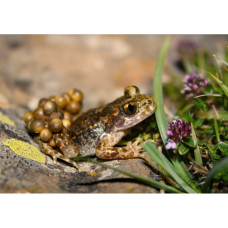Gabriela Camacho, Museum für Naturkunde, Berlin, Allemagne & Museu de Zoologia da Universidade de São Paulo, Brésil (Séminaire reporté à une date ultérieure)

ISYEB

ISYEB
Gabriela Camacho nous présentera ses travaux sur la diversification des fourmis.
Knowledge of species-level insect diversity, distributions and evolutionary relationships is needed now more than ever in the light of global insect declines. Although much work remains to be completed, recent advances in ant systematics and evolution have put us in a position to address key biodiversity questions that thus far have been reserved to more well-known groups such as vertebrates. In this talk, I will provide an overview of collaborative projects that build on and add to progress in ant phylogenomics to study the diversity and evolution of the group. First, I will discuss the goals and current results of our project MAMI (Malagasy Ant Microendemism), which is aimed at a synthesis of diversity survey efforts for ants in Madagascar spanning two decades. Here, we use a phylogenomic approach in combination with species distribution modeling to investigate regional patterns of diversity and endemism of ants in Madagascar across different habitat types, climate and elevational factors. I present initial results from this project focused on two widespread ant genera, Crematogaster and Pheidole. An analysis of island-wide community patterns of all ants in progress will uncover general patterns and allow us to draw broad conclusions for conservation planning. Hereby, I provide a myrmecological perspective on how Hymenoptera could become a model group for much-needed studies to support insect conservation.



